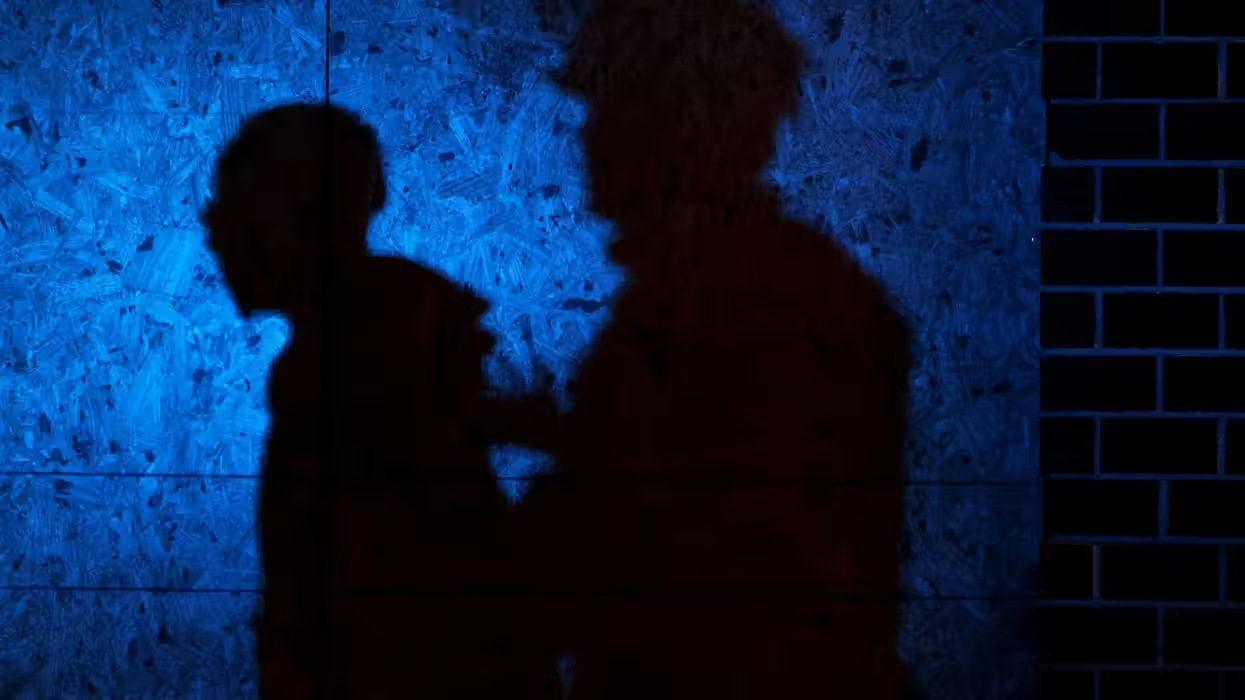© 2026 Blaze Media LLC. All rights reserved.
Israel's Army Radio Criticized for Saying it Won't Play...Anti-Army Song
October 17, 2012
"Learning to kill, is a matter of habit."
If a recording artist released a song that bashed U.S. military activities, would AFRTS, the Armed Forces Radio and Television Services, choose to broadcast it on its airwaves? That’s the sort of question being asked in Israel today after Galei Zahal – Israel’s Army Radio – decided to keep a song that bashes the IDF off its air.
The station is now facing criticism, predominantly from the left-wing, that it’s muffling free speech. But is this really a free speech matter or is it more about an organization’s decision on how to use its budgeted dollars – in this case shekels? That is, should it or shouldn't it support a song contrary to its raison d’etre? Though Galei Zahal, known by its Hebrew initials “Galatz” has turned into a wildly popular radio station listened to by the general public, not only conscripts, its founding mission included communicating military messages during wartime and bolstering morale.
One of its prominent shows every Friday, called “A Mother’s Voice,” links mothers and their soldier sons and daughters on base and in the field and broadcasts their exchange of greetings, words of support and expressions of longing, capped by a song request.
A far cry from the essence of the new song which professes that for IDF soldiers, “Learning to kill, is a matter of habit.” Haaretz reports:
Israel's Army Radio chief, Yaron Dekel, cancelled a special broadcast of a new song released by musician Izhar Ashdot as the song, entitled 'A Matter of Habit,' is demeaning to IDF soldiers and according to Dekel, should not receive airtime on the IDF's radio station.Among the song's lyrics, written by Alona Kimhi, are the lines "they are not men, nor women / They are mere objects, mere shadows / To learn to kill / It is a matter of habit … To learn cruelty / Is a matter of momentum / It starts small / And then it comes."
Haaretz reports that Army Radio did initially play the song a number of times and received complaints over its lyrics. The station put out a statement which as translated by Haaretz said:
"Due to the song's contents, which debase IDF soldiers, the station commander decided that there is no room on Army Radio to publicly celebrate a song that denigrates and denounces those that have sacrificed their life for the defense of the country."The statement continued, "the artist Izhar Ashdot is held in high esteem by Army Radio. In this specific case however, we believe with the artistic leeway afforded to artists by this station, Army Radio, as a station of soldiers, where many soldiers perform their military serve, should avoid celebrating a song that demonizes those soldiers."
The song’s lyrics accuse IDF soldiers of dehumanizing Palestinians, viewing them as shadows and worse:
The cousin like an animalUsed to blood
Doesn’t feel suffering
Is not human
Ashdot says the lyricist Alona Kimchi was inspired by a tour she took with “Breaking the Silence,” a non-governmental organization made up of former Israeli soldiers who want “to expose the Israeli public to the reality of everyday life in the Occupied Territories,” which according to the group, includes abuse of Palestinians and destruction of their property.
Breaking the Silence is considered controversial in Israel, particularly because it meets with and distributes materials to high school students just before conscription.
According to a Jerusalem Post op-ed, Executive Council of Australian Jewry President Danny Lamm called the group’s findings “anonymous... devoid of critical detail and untested by any kind of cross-questioning.” The IDF has complained Breaking the Silence won’t share its findings with military investigators and says the group’s only motive is “to generate negative publicity for the IDF and its soldiers.”
Gerald Steinberg who heads NGO-Monitor, an Israeli research group committed to exposing the anti-Israel activities of some NGOs, wrote last month that Breaking the Silence plays a key role in political warfare against Israel:
The stated aim of BtS, whose campaigns are made possible by major support from European governments and the New Israel Fund, is to “expose the Israeli public to the reality of everyday life in the Occupied Territories.” However, in many of its activities, BtS courts the international media rather than presenting its allegations to the Israeli government or the IDF for investigation through due process of law. And in a country whose democratic debate features every possible dimension and point of view, and where there are more opinions than citizens, it is also unclear just what “silence” this organization is attempting to break.
The singer Ashdot released a statement of his own in which he slammed Army Radio’s statement: "The release of the statement and the announcement that it represents the position of Army Radio negates the possibility of holding a fair and balanced discussion on the song and its contents. I am worried by the fact that in a democratic country a media outlet bans a song."
The LA Times obtained more reaction:
Michael Sfard, an activist attorney who represents Breaking the Silence, called the decision a "sad instance of political censorship" and wondered if an interviewer speaking, not singing, the same critique would be censored.Ronen Shoval, chairman of Im Tirtzu, a conservative organization aiming to reinforce Zionist values and combat the de-legitimization of Israel, dismissed the claim of political censorship.
Shoval told the Times, "People have the right to say whatever they want but not wherever they want," and that the song should not be broadcast on the soldiers’ “home station.”
Here is the song via YouTube:
Want to leave a tip?
We answer to you. Help keep our content free of advertisers and big tech censorship by leaving a tip today.
Want to join the conversation?
Already a subscriber?
more stories
Sign up for the Blaze newsletter
By signing up, you agree to our Privacy Policy and Terms of Use, and agree to receive content that may sometimes include advertisements. You may opt out at any time.
Related Content
© 2026 Blaze Media LLC. All rights reserved.
Get the stories that matter most delivered directly to your inbox.
By signing up, you agree to our Privacy Policy and Terms of Use, and agree to receive content that may sometimes include advertisements. You may opt out at any time.






